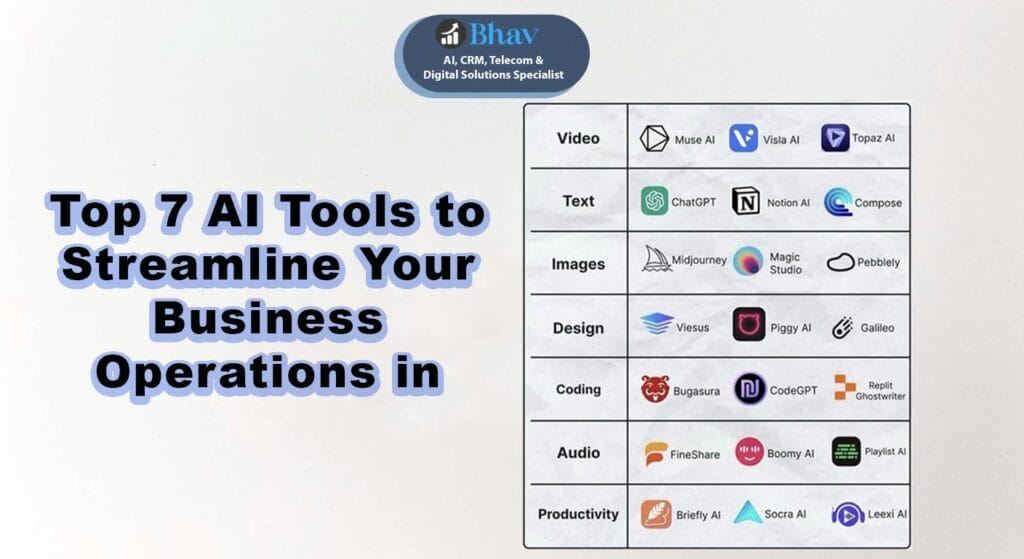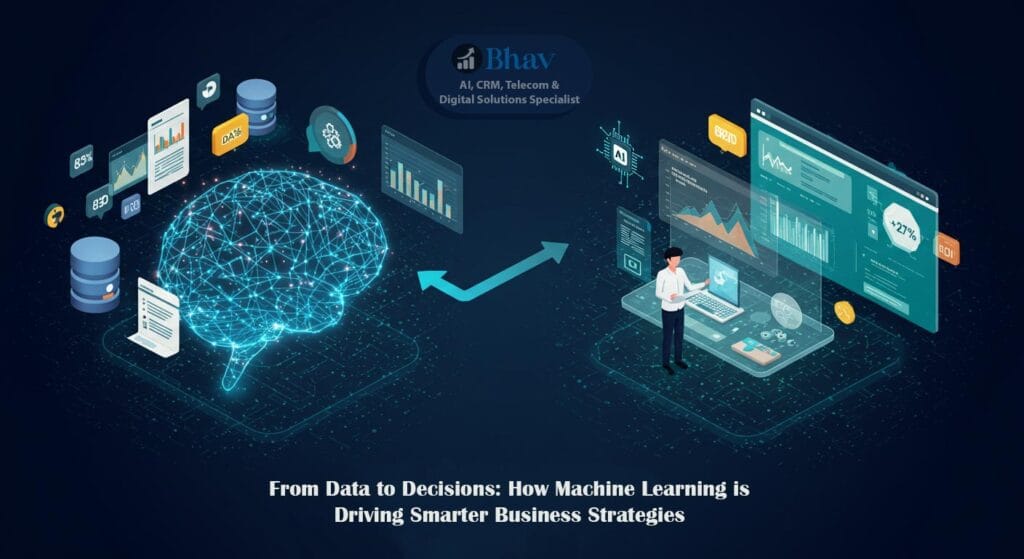
Introduction to AI in Startups
Artificial intelligence (AI) has emerged as a transformative force in the modern startup ecosystem, providing innovative solutions that can significantly enhance operational efficiency and decision-making capabilities. The integration of AI into a startup’s framework, particularly during the crucial Minimum Viable Product (MVP) development stage, is becoming increasingly recognized for its potential to drive growth and competitiveness. By leveraging AI technologies, startups can streamline processes, optimize resource allocation, and create more customer-centric products.
The critical phase of developing an MVP requires startups to validate their ideas with minimal resources. Incorporating AI during this phase enables entrepreneurs to analyze vast amounts of data swiftly, gather insights on user behavior, and identify market trends, which are essential for refining product offerings. AI-powered tools can facilitate user feedback analysis, allowing startups to iterate on their product features based on real-time data, thus ensuring alignment with market demands.
Moreover, AI can significantly inform strategic decision-making by providing predictive analytics that help founders understand potential risks and opportunities in their market landscape. By anticipating shifts in consumer behavior or emerging trends, AI equips startups with the ability to pivot their strategies accordingly, thus maintaining a competitive edge. In a landscape where speed and adaptability are paramount, the insights and efficiencies delivered by AI can be the differentiating factors between success and failure.
Incorporating AI in startups extends beyond mere data analysis. It encompasses automating routine tasks, enhancing customer service with intelligent chatbots, and optimizing marketing campaigns through personalized targeting. This confluence of capabilities not only fosters innovation but can also lead to sustainable growth in an increasingly competitive environment. Understanding the essence of AI and its strategic implications is, therefore, vital for startups aiming for market domination.
Understanding MVP and Its Importance
A Minimum Viable Product (MVP) is a development technique used by startups to create a product with just enough features to satisfy early adopters and collect valuable feedback for future iterations. By concentrating on core functionalities that address the primary needs of users, startups can avoid the pitfalls of building a fully-fledged product that may not resonate with the target audience. The importance of an MVP lies in its ability to validate business ideas quickly without committing extensive resources upfront.
In defining an MVP, it is critical to focus on the “minimum” and “viable” aspects of the product. The term “minimum” refers to the essential features that provide value to the user and distinguish it from competitors. The “viable” aspect signifies that the product must be functional enough to ensure a positive user experience, thus encouraging adoption and stimulating feedback. This iterative process allows startups to refine their offerings based on actual user interactions rather than assumptions.
Integrating artificial intelligence within the MVP can significantly enhance the development process. AI can optimize features by analyzing user data and behavior in real time, helping startups adapt quickly to market demands. Moreover, leveraging AI tools can automate feedback collection, enabling startups to better understand user preferences and pain points. This data-driven approach not only supports the initial validation of ideas but also helps in making informed decisions when considering potential pivots.
Ultimately, a well-defined MVP serves as a foundational element for startups aiming for market domination. It allows for experimentation and learning in a controlled environment, mitigating risks associated with full-scale launches. By prioritizing rapid development and user-centric design, entrepreneurs can effectively navigate the evolving landscape of their respective industries, significantly increasing their chances of long-term success.
AI-Driven Product Development
In today’s fast-paced technology landscape, harnessing the capabilities of artificial intelligence (AI) in product development has become paramount for startups aiming to achieve significant market presence. AI tools are revolutionizing how entrepreneurs approach product features, facilitating an agile development process through data-driven decision-making.
By leveraging AI analytics, startups can efficiently analyze user data and market trends. These insights enable them to understand customer preferences and behaviors, which inform the design and functionalities of the product. With AI, startups can uncover patterns within large data sets that might otherwise go unnoticed, leading to more informed decisions that align with market demands. For example, machine learning algorithms can process user interactions to identify the most desired features, shaping a product that resonates with the target audience.
Moreover, AI significantly enhances the prototyping phase. Traditional prototyping can be time-consuming and expensive; however, AI-based tools can quickly generate digital prototypes based on gathered data. These prototypes can be tested and refined in real-time, allowing startups to streamline their development process. By utilizing AI, entrepreneurs can rapidly iterate through design modifications, leading to a product that evolves in tandem with user feedback and changing market conditions.
Additionally, AI facilitates continuous improvement by analyzing customer feedback systematically. Sentiment analysis tools can gauge user satisfaction, helping teams identify areas that need enhancements. This iterative feedback loop not only fosters innovation but also reinforces a customer-centric approach to product development. The ability to pivot based on concrete user insights contributes to the creation of products that not only meet but exceed market expectations.
Through the integration of AI in product development, startups can leverage advanced technologies to accelerate their growth trajectory, ensuring their offerings remain relevant and competitive in an ever-evolving marketplace.
Leveraging AI for Customer Acquisition
In the competitive landscape of startups, effectively acquiring customers is essential for sustained growth and market presence. Artificial Intelligence (AI) has emerged as a powerful tool in refining customer acquisition strategies, making it possible for businesses to approach potential customers with remarkable precision. By incorporating AI-driven methodologies, startups can significantly enhance their marketing campaigns, which leads to improved targeting and increased conversion rates.
One prominent application of AI in customer acquisition is the creation of personalized marketing campaigns. This entails analyzing vast amounts of data to segment audiences based on their preferences, behaviors, and demographics. By employing machine learning algorithms, AI can identify intricate patterns within data, allowing businesses to tailor their messaging to resonate with specific groups. This level of personalization not only captures the attention of potential customers but also builds trust and engagement, ultimately enhancing loyalty.
Moreover, AI facilitates predictive analytics, which is another crucial facet of effective customer acquisition strategies. By leveraging historical data and trends, predictive models can project future customer behaviors and preferences. This insight enables startups to identify promising leads and optimize their outreach efforts. For instance, businesses can forecast when a customer is most likely to engage or purchase, thereby timing their marketing efforts perfectly to coincide with these moments of opportunity. By employing such advanced techniques, startups can allocate their resources more efficiently, ensuring that marketing efforts yield optimal results.
In summary, leveraging AI for customer acquisition not only streamlines marketing initiatives but also empowers startups to make data-informed decisions. Through personalized campaigns and predictive analytics, businesses can effectively identify and engage potential customers, laying a solid foundation for growth and market domination.
Scaling Operations with AI
As startups grow, optimizing operational efficiency becomes imperative for sustaining momentum and ensuring long-term success. Artificial Intelligence (AI) plays a pivotal role in enhancing various operational aspects, particularly in automating repetitive tasks, streamlining workflows, and improving decision-making processes. By integrating AI-driven solutions into daily operations, startups can allocate resources more effectively and reduce the time spent on mundane activities.
One of the most significant advantages of utilizing AI is its capability to automate repetitive tasks that often consume valuable human resources. For example, tasks such as data entry, customer support queries, and inventory management can be efficiently handled by AI algorithms, allowing teams to focus on more strategic initiatives that drive growth. Automation not only decreases the potential for human error but also boosts overall productivity, enabling startups to operate at scale without compromising quality.
Moreover, AI contributes to streamlined workflows by enhancing collaboration and communication within teams. AI-powered tools, such as project management software and virtual assistants, can analyze workload patterns and suggest the most efficient ways to allocate tasks. This results in seamless interactions among team members and fosters an environment conducive to innovation and progress.
AI also significantly enhances decision-making processes by providing actionable insights based on data analysis. Advanced analytics tools enable startups to forecast demand more accurately, thereby optimizing inventory management. By anticipating market trends and consumer behaviors, businesses can ensure they maintain optimal stock levels, preventing instances of overstock or stockouts. This alignment between supply and demand ultimately leads to reduced operational costs and increased profitability.
Incorporating AI into a startup’s operational framework is essential for scaling successfully. By leveraging the technology’s capabilities, businesses can not only enhance productivity but also develop a competitive edge in the market. As operations strengthen through AI-driven optimizations, startups position themselves for sustainable growth and market dominance.
Key Challenges in Implementing AI for Startups
As startups increasingly incorporate artificial intelligence (AI) into their operations, they encounter several critical challenges that can hinder effective implementation and scaling. One prominent concern is data privacy, as new regulations such as GDPR require strict adherence to data handling and user consent. Startups must prioritize the protection of user data while ensuring compliance, which can be resource-intensive and complex, particularly for those without a dedicated legal team.
Additionally, the success of AI systems heavily relies on the availability and quality of data. Startups often struggle to collect sufficient high-quality data necessary for training AI models. If the data is biased, incomplete, or poorly structured, the AI application may yield unreliable outcomes, ultimately jeopardizing business decisions. As such, establishing rigorous data governance practices is vital for any startup aiming to leverage AI effectively.
Understanding AI technology itself presents another barrier. Many startups lack the technical expertise to implement advanced AI solutions, leading to potential misapplication or underutilization of available tools. Founders and team members must invest time into learning about AI functionalities, staying updated on industry trends, and possibly engaging with expert consultants or training programs to bridge knowledge gaps.
Moreover, balancing the integration of AI with human insight is crucial. While AI can enhance decision-making processes, it is important to remember that human intuition and creativity remain invaluable assets. Startups need to foster a collaborative environment wherein AI complements human expertise, enabling smarter strategies that drive innovation and market success. By acknowledging these challenges and adopting best practices, such as prioritizing data integrity and fostering continuous learning, startups can effectively navigate the complexities of AI implementation.
Success Stories: Startups Using AI
In recent years, numerous startups have harnessed the power of artificial intelligence (AI) to not only streamline their operations but also achieve remarkable growth and market dominance. One such example is Zoom.ai, which developed an AI-driven virtual assistant designed to enhance productivity in workplaces. By automating scheduling, managing tasks, and facilitating communication, Zoom.ai has significantly minimized administrative burdens for its users. As a result, the company experienced a rapid increase in its user base, expanding its footprint across various industries while saving its clients countless hours of manual work.
Another inspiring case is Snips, a voice recognition startup that provides privacy-focused voice assistant solutions. Snips utilized AI algorithms to empower users to control their devices through voice commands while ensuring data security. By directing efforts towards building a customizable and privacy-centric product, Snips captured a niche market. As businesses increasingly prioritize user data protection, Snips effectively positioned itself as a unique entity in the crowded tech landscape, ultimately leading to its successful acquisition by Sonos.
Additionally, the journey of Replika is noteworthy. This AI-driven chatbot serves as a virtual companion, using natural language processing to engage with users in meaningful conversations. By focusing on emotional well-being and building connections, Replika resonated with a large audience, especially during times of social isolation. The startup leveraged machine learning to personalize interactions, resulting in high user retention rates and a devoted community. This demonstrates how AI can enhance user experiences while driving growth and loyalty.
These success stories exemplify how innovative startups are strategically employing AI to bolster their operations and enhance customer satisfaction. By learning from their experiences, other aspiring entrepreneurs can better navigate their journey in leveraging artificial intelligence for scaling their businesses effectively.
Future Trends in AI for Startups
The landscape of artificial intelligence (AI) is evolving rapidly, presenting startups with opportunities to leverage innovative technologies for growth. One of the most significant future trends is the surge in AI-driven automation. Startups can utilize intelligent systems to streamline operations, reduce costs, and enhance efficiency. As AI algorithms become more sophisticated, they will enable businesses to automate complex processes previously thought to require human intervention.
Additionally, the rise of predictive analytics is reshaping decision-making across sectors. Startups that integrate AI-powered analytics tools can gain insights from vast amounts of data, identifying trends and customer behaviors that inform strategic direction. Machine learning models are being refined to provide more accurate forecasts which can empower startups to anticipate market shifts and tailor their offerings accordingly.
Another prominent trend is the increasing focus on natural language processing (NLP). With advancements in NLP technologies, startups can improve customer interactions through chatbots and virtual assistants that provide personalized support. These tools not only enhance customer experience but also gather valuable feedback, which can be analyzed to refine products and services.
Moreover, ethical AI is becoming a priority for businesses aiming to build trust and transparency with consumers. Startups that prioritize responsible AI development are more likely to attract partnerships and funding, as investors seek to align with businesses that exhibit ethical considerations in their operations. Ethical AI practices will also enable startups to navigate regulations that are increasingly scrutinizing AI implementations.
Lastly, startups should stay informed about AI democratization. As tools become more accessible, smaller companies can leverage AI technologies without significant investment in infrastructure. Embracing these trends will position startups not only to thrive but also to drive innovation in their respective industries effectively.
Conclusion: Embracing AI for Sustainable Growth
As we navigate the transformative landscape of modern entrepreneurship, it becomes evident that the integration of artificial intelligence (AI) is not merely an option but a necessity for startups aspiring to scale from their minimum viable product (MVP) to established market leaders. Throughout this blog post, we have explored the multifaceted benefits of AI in enhancing innovation, improving customer experience, and optimizing operational efficiency. By aligning AI technology with core business strategies, startups can leverage data-driven insights to refine their product offerings, better understand customer needs, and adapt to dynamic market conditions.
Startups ready to embrace AI will find that it serves as a catalyst for sustainable growth. The ability to automate routine tasks can free up valuable resources, allowing teams to concentrate on strategic initiatives that drive long-term success. Furthermore, AI’s predictive analytics capabilities enable businesses to anticipate market trends and customer behavior, positioning them ahead of competitors who may remain hesitant to adopt these technologies.
However, the journey towards AI integration should be approached thoughtfully. Startups must ensure they have a clear understanding of their goals and how AI can support them. This might involve investing in training for employees to effectively utilize AI tools or seeking partnerships with technology providers that specialize in AI solutions tailored to specific industry needs. Such proactive steps can significantly enhance the decision-making process and facilitate a robust framework for growth.
In conclusion, embracing AI offers startups the opportunity not only to thrive in an increasingly competitive landscape but also to forge a path toward sustainable growth. By prioritizing AI-driven strategies and remaining adaptable to ongoing technological advancements, startups can secure their position as market leaders, ready to face the challenges of tomorrow’s dynamic economy.
Latest Insights
No Posts Found




